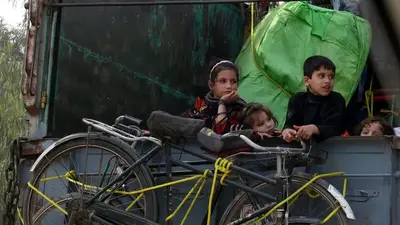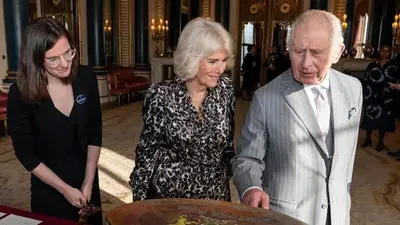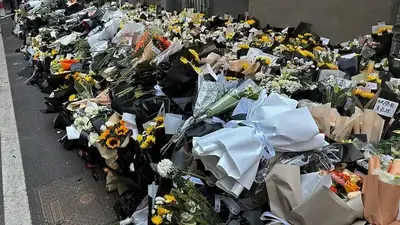World News
What is Palestinian Islamic Jihad, the Gaza militant group now fighting Israel?
JERUSALEM -- The cycle has become grimly familiar.
Over three days, Israeli airstrikes on Gaza have killed at least 28 people, including senior Palestinian militants, as well as children as young as 4 years old. Palestinian militants in Gaza have fired over 600 rockets toward Israel, killing one person, setting off warning sirens as far north as the coastal city of Tel Aviv and sending tens of thousands of Israelis into bomb shelters.
The most violent conflagration in months between Israel and Palestinian militants in Gaza has pitted the Israeli military against Islamic Jihad, Gaza's second-largest militant group after Hamas.
But Hamas, the militant group that runs the Gaza Strip, has sat this one out. As it tries to rein in its conflict with Israel and improve the miserable quality of life for the 2 million Palestinians under its control, Hamas has let the smaller Islamic Jihad group take the lead, as it did in a similar round of fighting last summer.
Here's a look at the group that has been exchanging blows with Israel:
WHAT IS PALESTINIAN ISLAMIC JIHAD?
Like the larger and stronger Hamas, Palestinian Islamic Jihad was formed in the 1980s as a radical Islamist movement to resist Israel’s occupation of Gaza.
The founder, Fathi Shikaki, a Palestinian inspired by the Islamic Revolution in Iran, sought to attract Palestinian nationalists disillusioned by secularism and Islamists disillusioned with what they saw as moderation by the pan-Arab Muslim Brotherhood movement, said Erik Skare, an author of a book on the group's history and researcher at the University of Oslo.
After the first Palestinian uprising in the late 1980s and early 90s, the Palestine Liberation Organization began peace talks with Israel that led to the formation of the semi-autonomous Palestinian Authority in parts of the West Bank and Gaza. Both Hamas and Islamic Jihad rejected the idea of peace talks and instead remained sworn to Israel's destruction. Badly weakened in Israel's brutal crackdown in the first uprising, Islamic Jihad later resurged during the second Palestinian uprising in 2000-5, as it orchestrated suicide bombings in Tel Aviv night clubs and other attacks.
Rather than engage in Palestinian elections or concern itself with social welfare as Hamas has done, Islamic Jihad has kept a singular focus on fighting Israel. The group also maintains a presence in the occupied West Bank, where its militants have attacked Israeli civilians and battled soldiers as violence in the territory surges to heights unseen in two decades.
WHO SUPPORTS ISLAMIC JIHAD?
Iran, the archenemy of Israel in the Middle East, heavily funds Islamic Jihad. Over the years, Iran has sent rockets, anti-tank weapons and mortar shells to Islamic Jihad and Hamas, Israel's Shin Bet intelligence agency assesses. Some parts have been smuggled through tunnels along Gaza’s southern border and other weapons are locally produced.
Hamas ruptured relations with Iran over its support for President Bashar Assad in the devastating Syrian civil war. Although it has begun to repair those ties, it also has worked to improve relations with Egypt, Saudi Arabia and other Arab states. Islamic Jihad, meanwhile, has cultivated closer ties with Iran.
WHAT ARE THE DIFFERENCES BETWEEN HAMAS AND ISLAMIC JIHAD?
Although Hamas and Islamic Jihad have the shared goal of fighting Israel, key differences have stirred tensions. Islamic Jihad — focused solely on military confrontations — has the most to gain from violence with Israel, while Hamas, as the de facto civilian government, increasingly has the most to lose. In the past, escalations between Israel and the Islamic Jihad have dragged in Hamas, jeopardizing its cash flow from ally Qatar, cutting off supplies to the territory and decimating public services and vital infrastructure. An 11-day war between Israel and Hamas in May 2021 killed over 260 Palestinians and devastated the territory.
Sensitive to public opinion, the ruling militant group has sought to keep a lid on conflict with Israel that could spark popular anger, cost thousands of Gazans permits to work inside Israel, and deepen the fatigue of a population that already has suffered four bloody wars and an Israeli-Egyptian blockade imposed after Hamas seized control of Gaza from the Palestinian Authority in 2007.
WHAT IS THE RELATIONSHIP BETWEEN HAMAS AND ISLAMIC JIHAD IN THIS CONFLICT?
To preserve its reputation as the main Palestinian resistance movement, Hamas has professed support for its heavily armed and rebellious rival through an umbrella group known as the “joint operations room.” But behind the scenes, experts say Hamas is conveying a very different message.
“Publicly, Hamas has to support Islamic Jihad. But it's also telling them, there are red lines you can't cross so we avoid a major escalation,” said Skare. “(Hamas) is urging Islamic Jihad to show restraint.”
WHAT IS DRIVING ISLAMIC JIHAD THIS TIME?
In a surprise attack Tuesday, Israeli warplanes killed three top Islamic Jihad commanders along with wives of two of them and some of their children as they slept in their homes. The Israeli military alleged the commanders were were involved in launching rockets against Israel last week in response to the death of a prominent hunger-striking Islamic Jihad leader in Israeli prison. Experts say the group's retaliation signals its own sensitivity to Palestinian public opinion.
“If Islamic Jihad didn't respond by throwing hundreds of rockets at Israel it would lose its strength and meaning as a political party,” said Reham Owda, an independent Gaza-based political analyst.
WHAT DOES ISRAEL HOPE TO GAIN?
The Israeli military described its targeted killings of Islamic Jihad commanders earlier this week as an effort to eliminate a dangerous wild card from the territory. Israel alleged one had been trying to establish a rocket-manufacturing operation in the West Bank. Soon after its first strikes, Israel declared its mission accomplished and has been careful not to attack Hamas sites in the ensuing exchange of fire. Involving Hamas would significantly escalate the conflict, increasing the likelihood of Israeli casualties and pushing up the Palestinian death toll. That could intensify international scrutiny of the country's military — already accused of possible war crimes in previous Gaza wars.
There may also be political considerations. Prime Minister Benjamin Netanyahu is facing one of the gravest national crises in Israeli History over his coalition's plans to overhaul the judiciary. The proposal has triggered mass protests and escalated tensions with foreign allies. After weeks in which it seemed Netanyahu's popularity was plunging, the bombardment of Gaza has united the country against a common threat and appeared to put the seasoned leader back in control.
But even if this violence offers Israel a brief respite from its social turmoil, it won't alter the fundamental dynamics of the Israeli-Palestinian conflict. After a few weeks or months of quiet, the bloody cycle will likely begin again.
-

 World News1h ago
World News1h agoNations at COP29 Agree $300B a Year for Poor Countries in Compromise Climate Deal
-
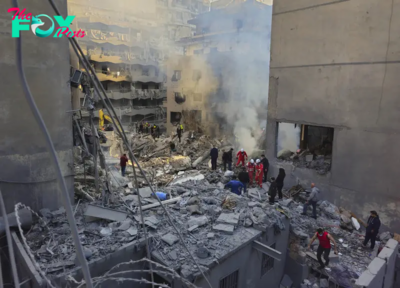
 World News6h ago
World News6h agoAt Least 15 Killed In Israeli Strikes in Beirut as Diplomats Push For Cease-fire
-

 World News11h ago
World News11h agoPhilippine Vice President Duterte Threatens to Have President Marcos Killed
-

 World News17h ago
World News17h agoUNWRA Chief Philippe Lazzarini on the U.N. Agency’s Future in Gaza
-

 World News1d ago
World News1d agoBrazilian Police Indict Former President Bolsonaro for Alleged Attempted Coup
-
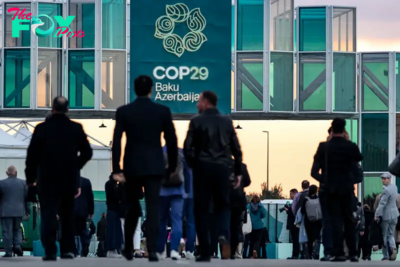
 World News1d ago
World News1d agoThe Future of Climate Action Is Trade Policy
-

 World News1d ago
World News1d agoWorld’s Best Brands – Brazil
-

 World News2d ago
World News2d agoWorld’s Best Brands – India






